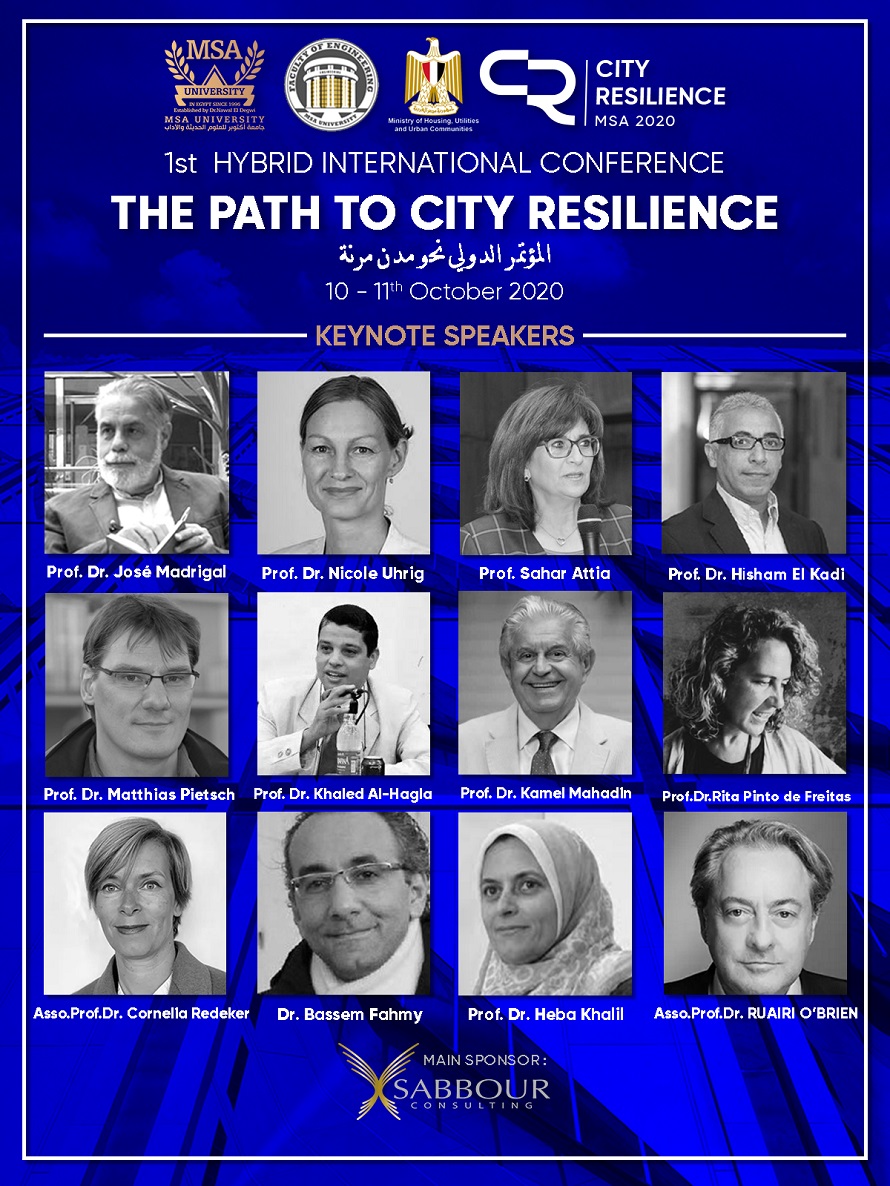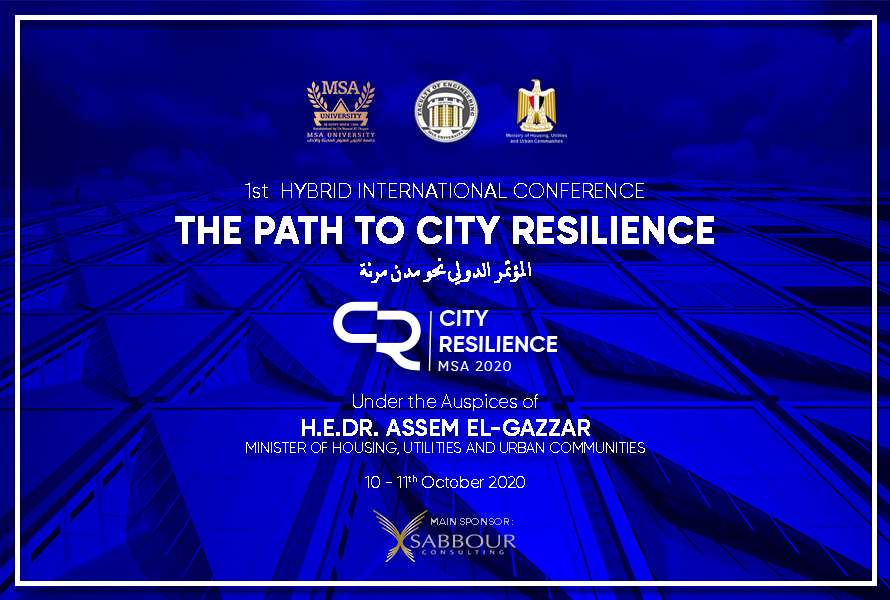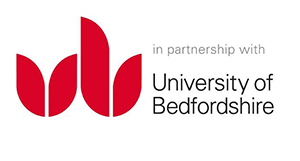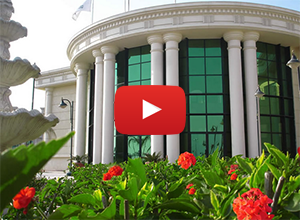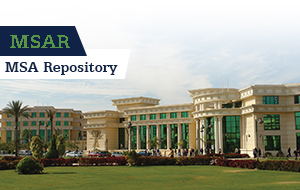Program Booklet
If you cannot view the below document, please click here. | Download the Program Booklet
Call for Submission
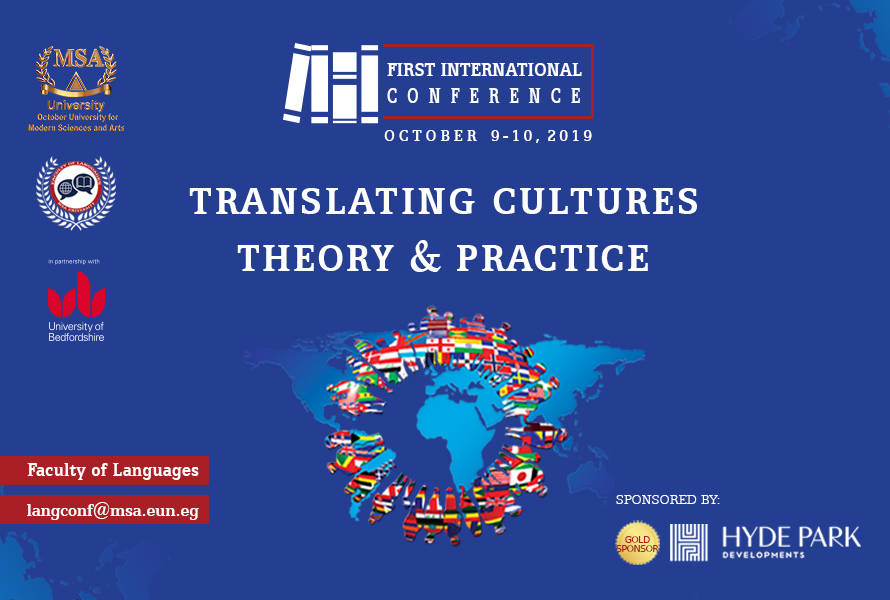
You are invited to send an abstract of 250-300 words to the following email: This email address is being protected from spambots. You need JavaScript enabled to view it.
Deadline for sending abstracts: 30th June, 2019
Acceptance notification: 11th July, 2019 (Abstracts are subject to a peer-review process)
Registration fees for presenters:
250 EGP for Egyptians
100$ for non-Egyptians
Registration fees for attendees:
150 EGP for Egyptians (Including a certificate of Attendance)
50$ for non-Egyptians
• Registration fees cover conference material, coffee breaks and refreshments for the two days.
• For any inquiries, send an email to This email address is being protected from spambots. You need JavaScript enabled to view it.
Keynote Speakers
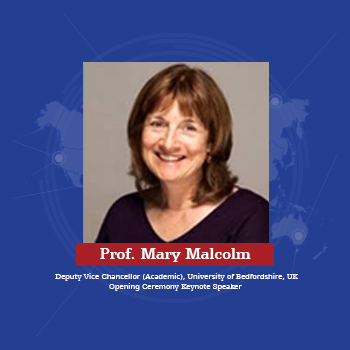 Professor Mary Malcolm, Deputy Vice Chancellor (Academic), University of Bedfordshire, UK Opening Ceremony Keynote Speaker
PPT Title: “Last in Translation: The Promise and Practice of a Research-Teaching Nexus”
- At University of Bedfordshire, Professor Malcolm has overall responsibility for the quality of the learning experience, including the work of the Centre of Learning Excellence to integrate into the curriculum the knowledge and skills that support enterprise, environmental sustainability, and global citizenship.
- She further has a leading role in partnership development (UK and overseas), quality assurance and organizational development.
Professor Mary Malcolm, Deputy Vice Chancellor (Academic), University of Bedfordshire, UK Opening Ceremony Keynote Speaker
PPT Title: “Last in Translation: The Promise and Practice of a Research-Teaching Nexus”
- At University of Bedfordshire, Professor Malcolm has overall responsibility for the quality of the learning experience, including the work of the Centre of Learning Excellence to integrate into the curriculum the knowledge and skills that support enterprise, environmental sustainability, and global citizenship.
- She further has a leading role in partnership development (UK and overseas), quality assurance and organizational development.
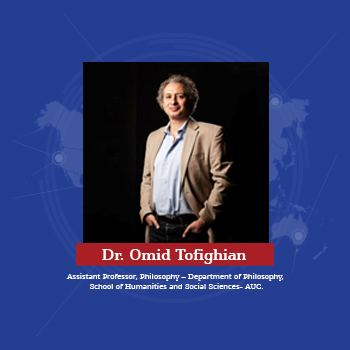 Dr. Omid Tofighian-
Dr. Omid Tofighian-
Assistant Professor, Philosophy – Department of Philosophy, School of Humanities and Social Sciences- AUC. Second Day Keynote Speaker
PPT Title: “Refugee Filmmaking and the Border-Industrial Complex”
- Omid Tofighian is an award-winning lecturer, researcher and community advocate, combining philosophy with interests in citizen media, popular culture, displacement and discrimination. He contributes to community arts and cultural projects and works with refugees, migrants and youth.
- Tofighian has taught at different universities in Australia, the United Arab Emirates, Belgium, the Netherlands & Egypt. He has published numerous book chapters and journal articles.
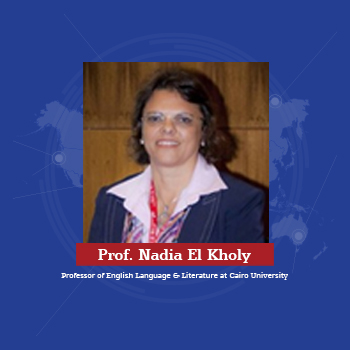 Prof. Nadia El Kholy, Professor of English Language & Literature at Cairo University
PPT Title: “The Fairy Tale and Translation: Is there an Egyptian Cinderella?”
- University of Bedfordshire External Examiner at MSA University-Faculty of Languages
- Nadia El Kholy was the Cultural Counsellor at the Egyptian Embassy in London from 2012-2015. She served as Director of the National Council for Children’s Culture, was a member of the jury for the Hans Christian Anderson international award for Children's Literature and is currently a member of the IBBY (international Board of Books for Young Readers) Executive Committee as well as President of the Egyptian Board of Books for Young Readers (EBBY).
- Her research interests include writing and translation for children, Comparative and Postcolonial Literature, and Gender Studies.
Prof. Nadia El Kholy, Professor of English Language & Literature at Cairo University
PPT Title: “The Fairy Tale and Translation: Is there an Egyptian Cinderella?”
- University of Bedfordshire External Examiner at MSA University-Faculty of Languages
- Nadia El Kholy was the Cultural Counsellor at the Egyptian Embassy in London from 2012-2015. She served as Director of the National Council for Children’s Culture, was a member of the jury for the Hans Christian Anderson international award for Children's Literature and is currently a member of the IBBY (international Board of Books for Young Readers) Executive Committee as well as President of the Egyptian Board of Books for Young Readers (EBBY).
- Her research interests include writing and translation for children, Comparative and Postcolonial Literature, and Gender Studies.
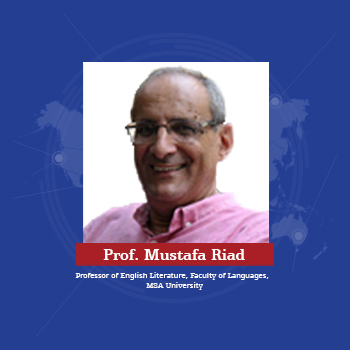 Prof. Mustafa R M Riad, Professor of English Literature, Faculty of Languages, MSA University
PPT Title: “Ethical and Social Responsibility in the Practice of Translation: A Case Study of Egyptian Translators in Modern Times”
- Professor Riad's research interests include comparative studies and translation. He is a translator and editor of several works and studies in literature and the humanities. Published papers and took part in conferences in Egypt and abroad in the fields of theatre and translation. He is the Ex- Editor-in-chief of Al Masrah (Theatre) magazine published by the General Egyptian Book Organization. And an esteemed expert in the Literature Committee of the Academy of the Arabic Language.
Prof. Mustafa R M Riad, Professor of English Literature, Faculty of Languages, MSA University
PPT Title: “Ethical and Social Responsibility in the Practice of Translation: A Case Study of Egyptian Translators in Modern Times”
- Professor Riad's research interests include comparative studies and translation. He is a translator and editor of several works and studies in literature and the humanities. Published papers and took part in conferences in Egypt and abroad in the fields of theatre and translation. He is the Ex- Editor-in-chief of Al Masrah (Theatre) magazine published by the General Egyptian Book Organization. And an esteemed expert in the Literature Committee of the Academy of the Arabic Language.
Publications

Distinguished papers published in special edition of;
- Fayoum University journal of Engineering (FJE)
- Journal of Urban Research (JUR) Cairo University
- The Path to city Resilience Conference proceeding
Download: Book of Abstract.
Download: Conference Proceeding Book.
Committees

- Under the Auspices of H.E. DR. ASSEM EL‐GAZZAR Minister of Housing, Utilities, and Urban Communities in Egypt
- Under The Auspices of Dr. Nawal El Degwi
- Conference Chair Prof. Nahed Sobhy, Faculty Dean
- Conference Co-Chair Prof. Hesham Aref, Faculty Vice Dean
- Conference Determinative Assoc. Prof. Zeinab Feisal
Members (Alphabetical):
- Abbas El-Zafarany, Cairo Uni., EGY
- Adel Al Dosary, King Fahd Uni., KSA
- Adel Yasseen, Ain Shams Uni, EGY
- Ahmed El Seragy, Arab Academy, EGY
- Ahmed Ouf, Cairo Uni., EGY
- Ahmed Rashed, BUE Uni., EGY
- Ahmed Shetawy, MSA Uni., EGY
- Ahmed Yousry, Cairo Uni., EGY
- Aly Gabr, Cairo Uni., EGY
- Ali Abu Ghanimeh, University of Jordan
- Amal Abdou, Helwan Uni., EGY
- Ashraf M.Salama, Uni. of Strathclyde, UK
- Ayman Wanas, AAST, EGY
- Basel Kamel, AUC, EGY
- Benzion Kotzen ,Uni. Of Greenwich, UK
- Ed Wall, Uni. Of Greenwich, UK
- Ehab Okba, Fayoum University, EGY
- Eman Eid Attia, Menofia Uni., EGY
- Esam Eldin Mohamed, Assiut Uni., EGY
- Ghada Farouk, Ain Shams Uni, EGY
- Hania Hamdi, Helwan Uni., EGY
- Hisham Aref, MSA Uni., EGY
- Hisham El-kadi, Uni. of Salford, UK
- Hisham Gabr, AUC, EGY
- Ibrahim Eldemery, HBRC, EGY
- Khaled Dewidar, BUE Uni., EGY
- Khalid S. Al-Hagla, Alexandria Uni., EGY
- Khalid Abdel Hadi, Benha Uni., EGY
- Lamis El Gizawi, Mansoura Uni., EGY
- Maysa Omar, MSA Uni., EGY
- Mervat El- Shafie, Effat Uni., KSA
- M. Alaa Mandour, Helwan Uni., EGY
- Mohamed Essmat El-Attar, BUE, EGY
- Mohamed Salheen, Ain Shams Uni, EGY
- Mohga Embabi, Fayoum Uni., EGY
- Mostafa Refaat, Ain Shams Uni, EGY
- Nader El-Bizri, AUB, LEBNON
- Namir Heikal, MSA Uni., EGY
- Neveen Hamza, Newcastle Uni., UK
- Nurhan Abujidi, ZUYD Uni., Netherland
- Sahar Attia, Cairo Uni., EGY
- Sahar El-Arnaouty, Alex. Uni., EGY
- Shahdan shabka, Cairo Uni., EGY
- Sherif El-Attar, Fayoum Uni., EGY
- Soheir Hawas, Cairo Uni., EGY
- Vincent Nadin, Delft Uni., Netherland
- Walaa Nour, Tanta Uni., EGY
- Zeinab Shafik, Cairo Uni., EGY
- Assoc.Prof Dr Zeinab Feisal
- Assoc.Prof Dr Nihal Amer
- Dr Eman Saleh
- Dr Mai Ebeid
- Dr Ghada Ghazala
- LA. Esraa Elareef
- LA. Nermine Nofal
- LA. Rana Adel
- LA. Shereen Abou Dagher
- LA. Yousra Mohamed
- LA. Yosra Alaa El Din Attwa
- LA. Aya El Kholy
- TA. yara mohamed
- TA. Nariman Shehab
Important Dates

| Abstract submission due | September 14th, 2019 (Extended to September 28th, 2019) |
| Abstract acceptance notification | September 22nd, 2019 |
| Full paper submission due | November 30th, 2019 |
| Full paper acceptance notification | January 12th, 2020 |
| Conference days | March 22nd,23rd, 2020 |
| Rescheduled Dates | October 10th,11th, 2020 |
The Path to City Resilience International Conference

This conference will be a chance to find new solutions and innovations in the resilient urban systems. These creative inventions can be a motive to dynamic, desirable and healthy communities. “The Path to City Resilience” conference is a fertile ground for architects, engineers, city planners, social and political scientists who able to consider new concepts and adapt them according to technological innovations and human desires.
Tel: +202-383-71114/5/6
Fax: +202-383-71543
E-Mail: This email address is being protected from spambots. You need JavaScript enabled to view it. - This email address is being protected from spambots. You need JavaScript enabled to view it.
zenci porno asyalı porno brazzers yaşlı porno amatör porno yaşlı porno sex hard seks tecavüz porno rokettube mature porno hd pornolar
Validated by:
Main Office - 6th Oct. Campus
26 July Mehwar Road intersection with Wahat Road, 6th October City. Egypt.
Tel. : 3837-1113
Tel. : 3837-1115
Tel. : 3837-1516
Tel. : 3837-1519
Admission Office: admission@msa.edu.eg
Graduates Affairs: sgaffairs@msa.edu.eg
Mobile: 01270447292
Hotline : 16672
International Hotline: 002-0216672

